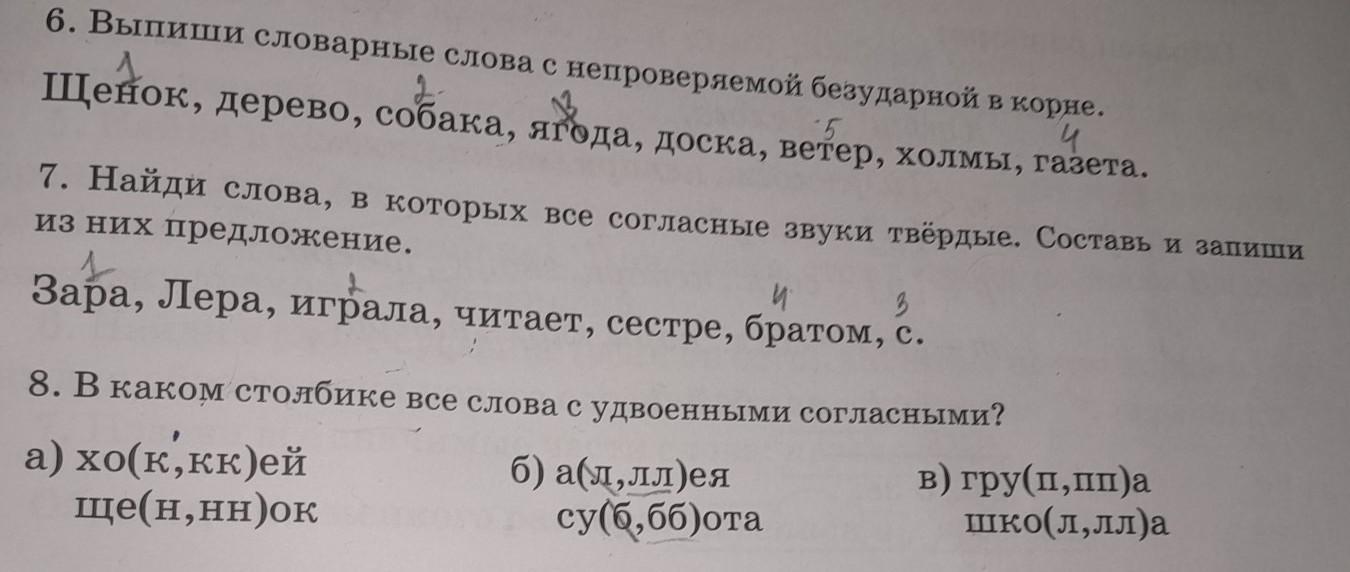Предмет: Русский язык,
автор: faridaiskandarova068
помогите пожалуйста выполнить задание срочно
Приложения:

maxburahasanova:
Какой вапрос все ??????
спасибо
Ответы
Автор ответа:
1
Объяснение:
8.б)аллея, суббота
7.зара, играла,братом
я играла с мамой
я иду в садик за братом
Похожие вопросы
Предмет: Математика,
автор: lesiamoskal1996
Предмет: Физика,
автор: maksimseniv111
Предмет: Русский язык,
автор: karikari1004
Предмет: Русский язык,
автор: Аноним
Предмет: Английский язык,
автор: surpaevgadziatta